Mathematical operations and functions are essential when working with JavaScript. In this tutorial, you will learn everything you need to know about basic mathematical functions related to JavaScript. Learning these functions is crucial for performing effective and accurate calculations, whether for simple arithmetic or complex applications. Let’s dive in!
Key Insights
- JavaScript offers a variety of mathematical functions, including random numbers, rounding, minimum and maximum values.
- The Math object provides constants and functions for mathematical calculations.
- You can generate pseudo-random numbers using the Math.random() function.
- Other important functions include Math.round(), Math.sqrt(), Math.min(), and Math.max().
Step-by-Step Guide
1. Getting to Know the Math Object
Start with the Math object, which provides a collection of mathematical functions and constants. These functions are useful for calculations of all kinds. For example, you can retrieve the value of Pi from the Math object, which provides much more accurate values than a manually defined constant.
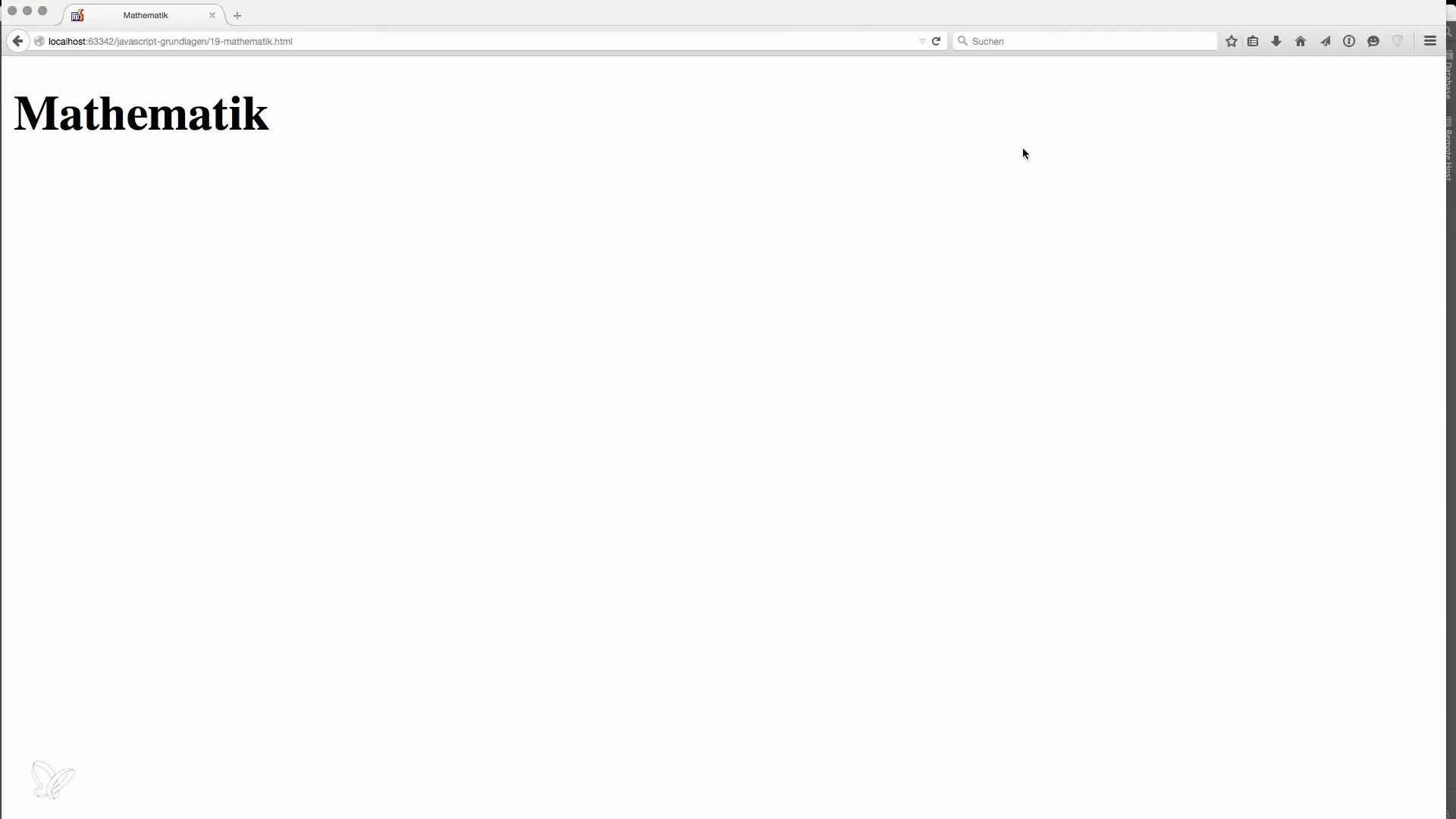
2. Retrieving Pi
To use the value of Pi, use Math.PI. This gives you the constant 3.141592653589793, which provides a much more accurate basis for calculations than 3.14.
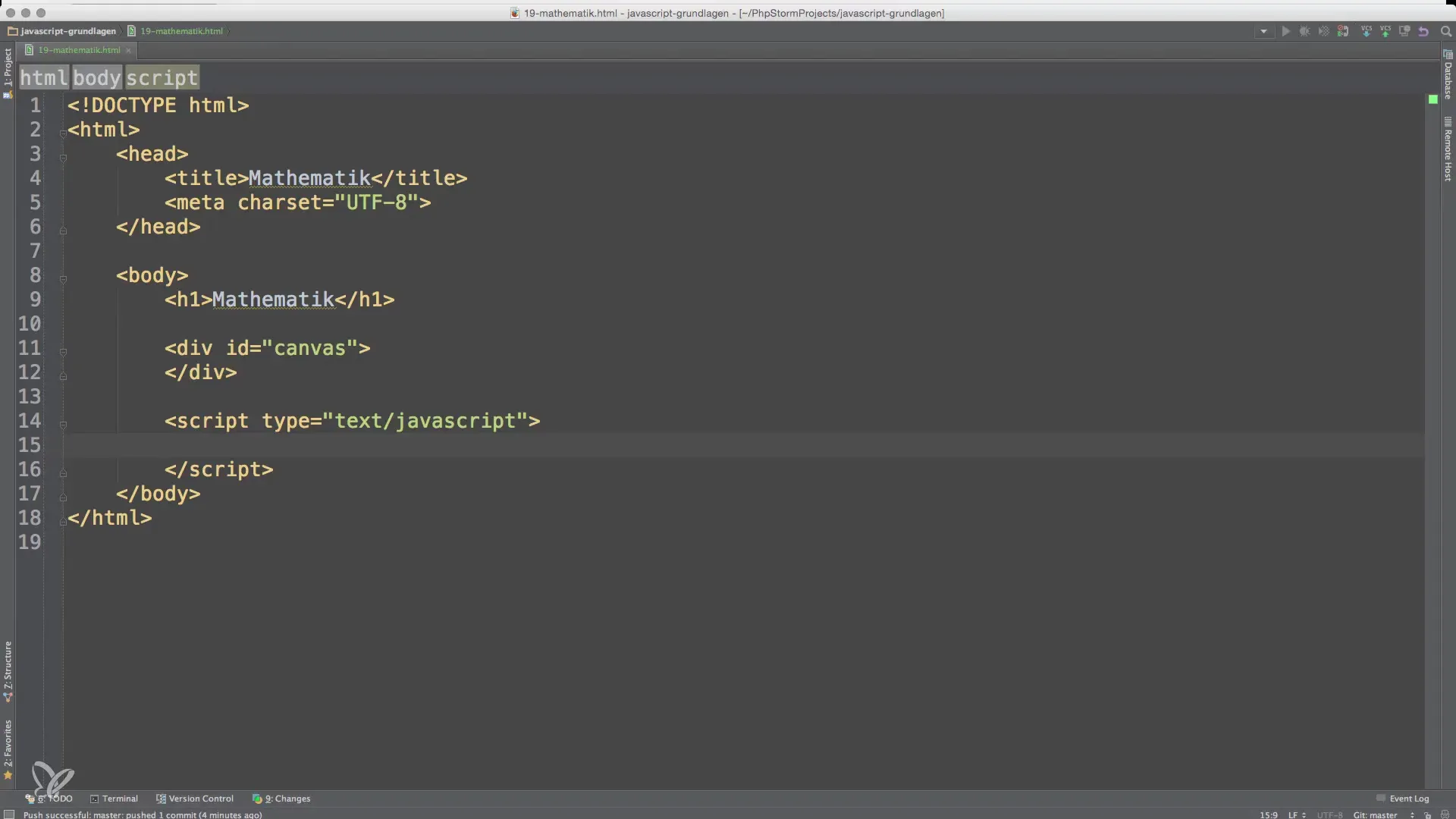
3. Square Root Calculation
The function Math.sqrt() is used to calculate the square root of a number. For example, to calculate the square root of 9, you can use Math.sqrt(9), which gives you 3.
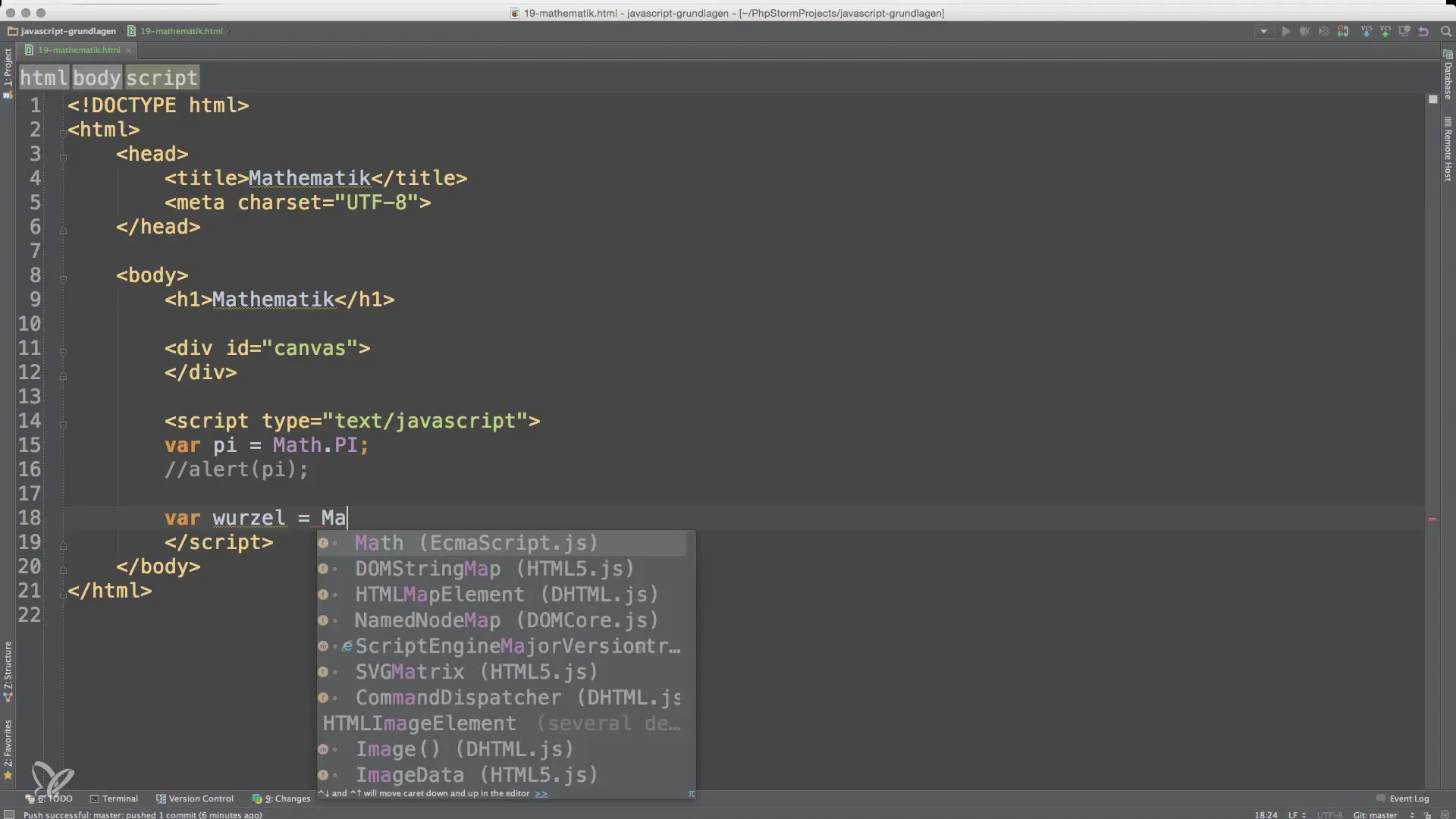
4. Rounding Numbers
When working with decimal numbers, rounding can be important. The Math.round() function rounds a number to the nearest integer. 78.3 would round down to 78, while 78.5 would round up to 79.
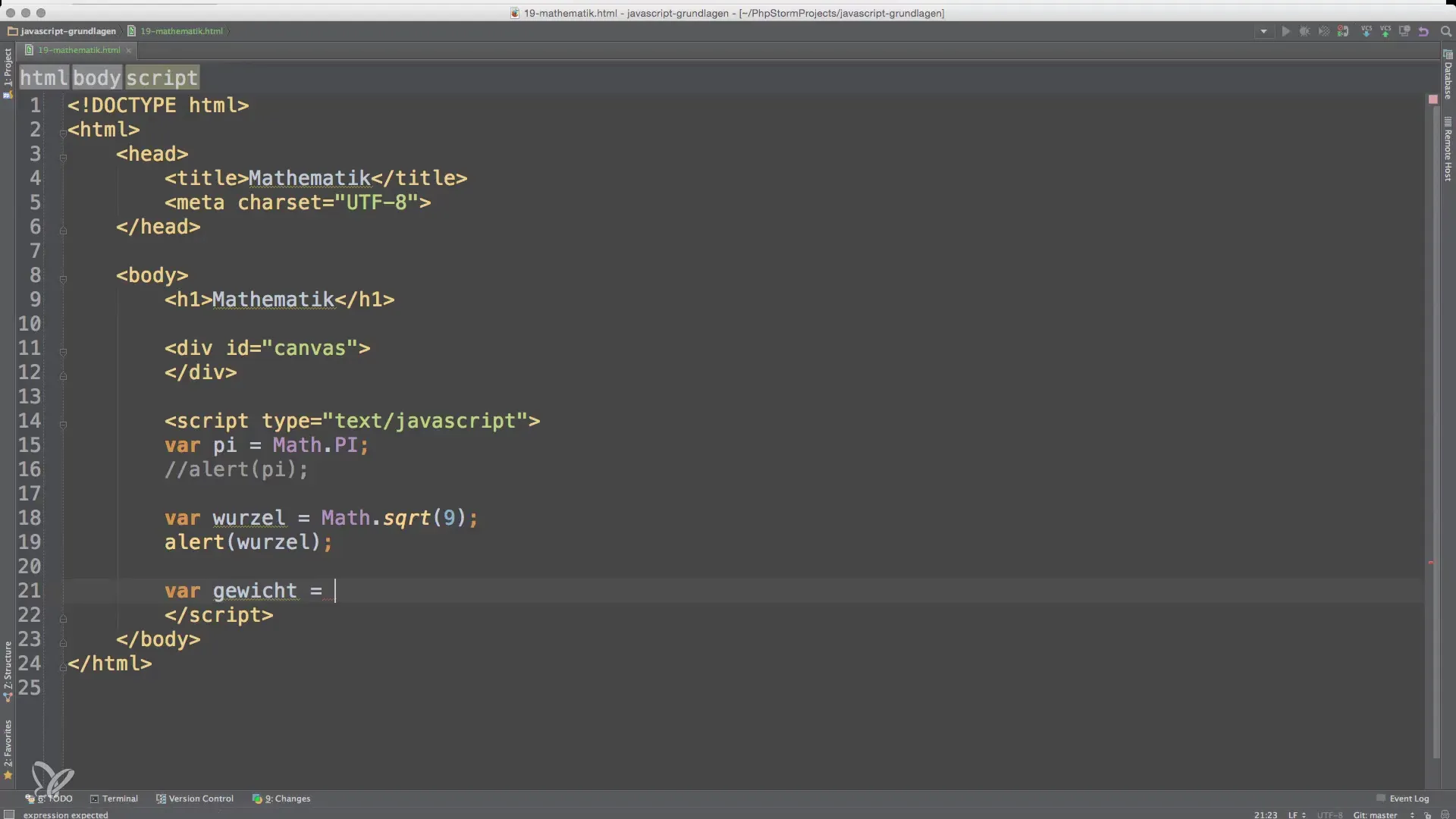
5. Using Math.floor() for Rounding Down
If you want to simply round down a number without following standard rounding rules, you can use Math.floor(). This cuts off the decimal places and returns only the integer.
6. Using Math.ceil() for Rounding Up
If you want to ensure a number is always rounded up to the next integer, use Math.ceil(). This is useful when you need to make sure your calculations do not drop below a certain value.
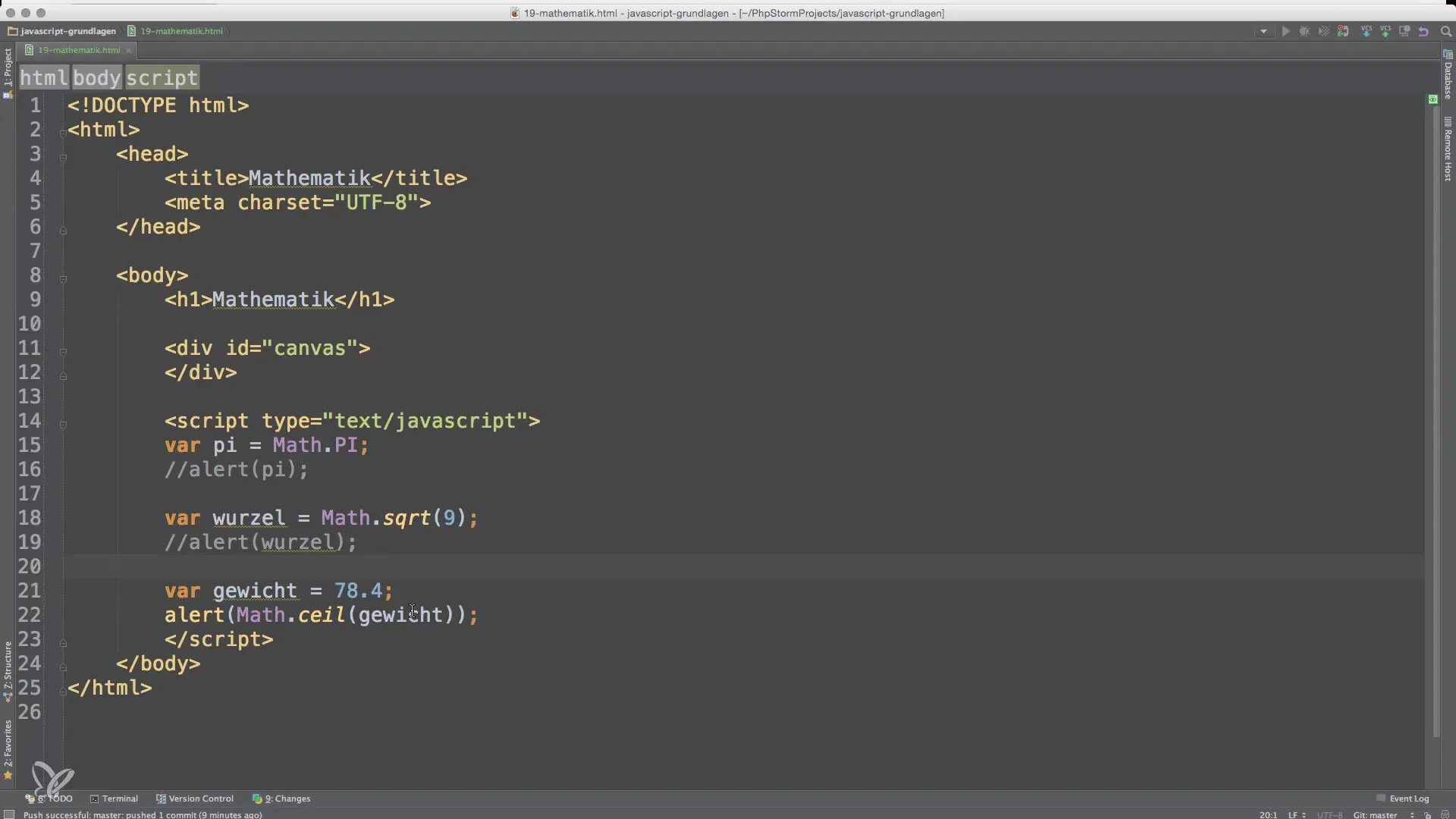
7. Generating Random Numbers
With Math.random(), you can generate a pseudo-random number between 0 and 1. This allows you to integrate random numbers into your applications, e.g., for games or random generation.
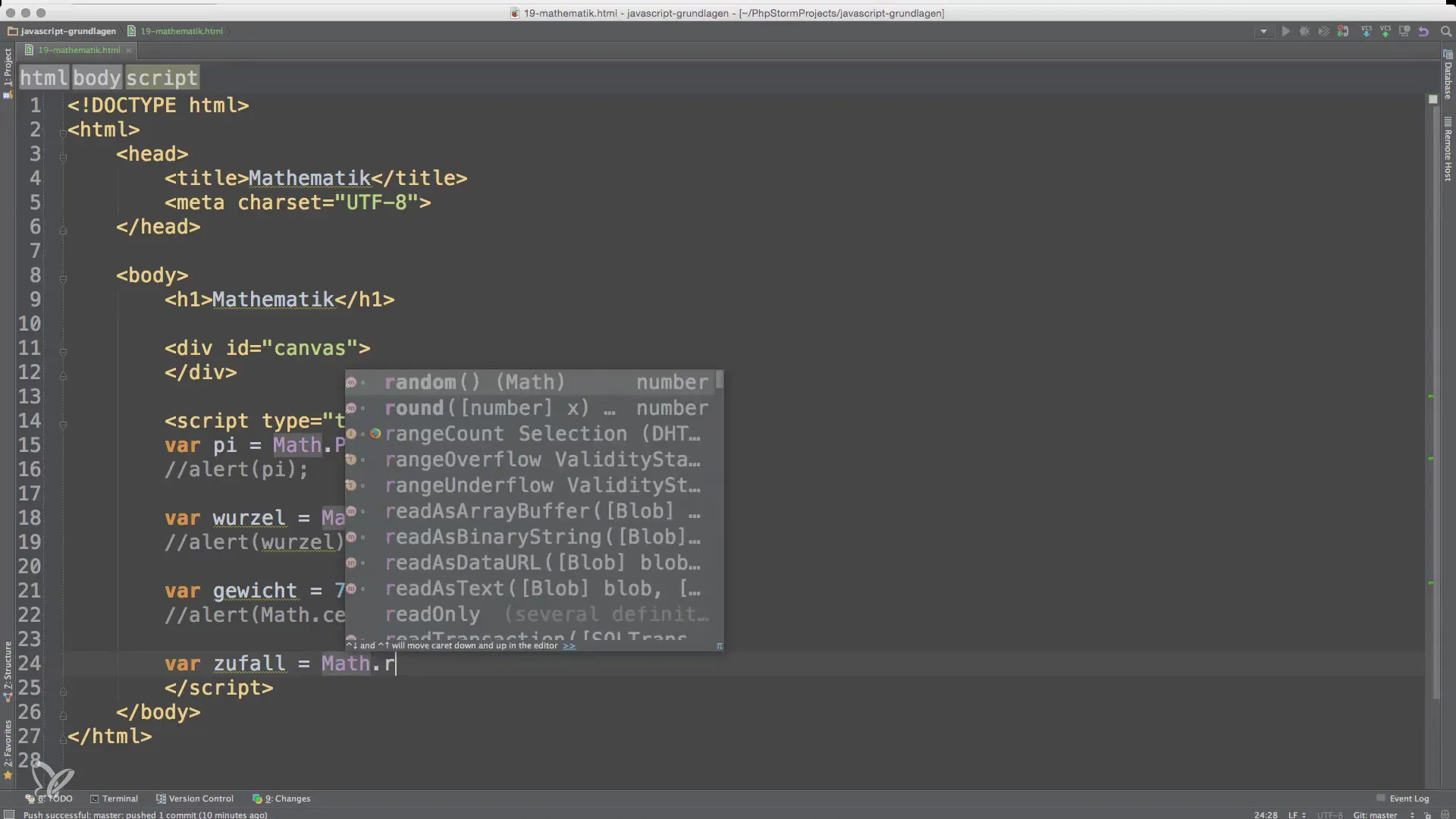
8. Random Numbers in a Desired Range
To generate a random number within a specific range, you need to scale the result of Math.random() accordingly. For example, if you want a random number between 1 and 10, you can do: Math.floor(Math.random() * 10) + 1.
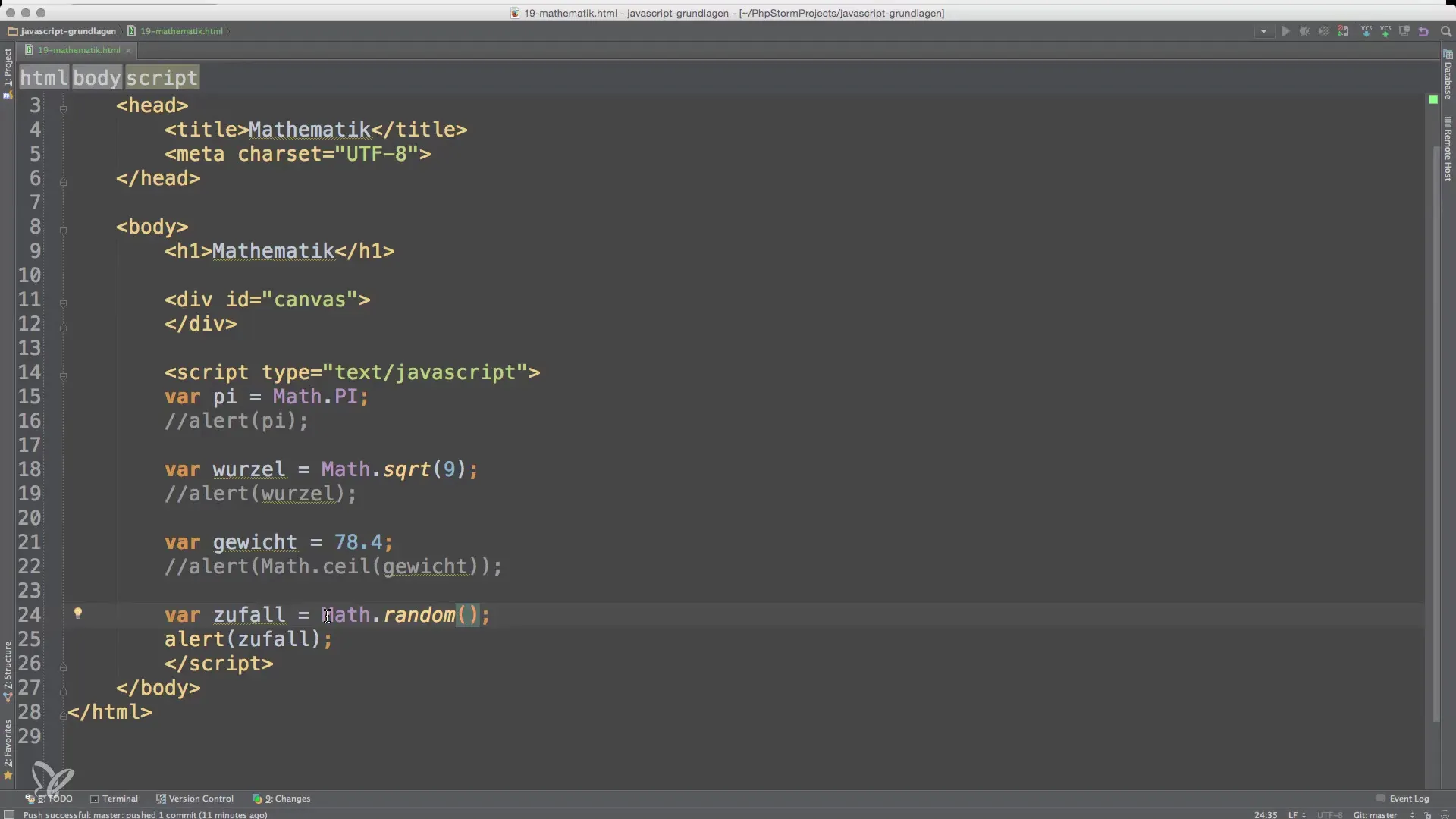
9. Determining Min and Max Values
Determining minimum and maximum values from a list of numbers is also easy with Math.min() and Math.max(). You can pass a list of values, and these functions will return the corresponding value.
10. Practical Applications
Finally, remember that these functions are not only important in theory. Their practical application ranges from data analysis to game development. Be aware of how you can use them to make your code more efficient.
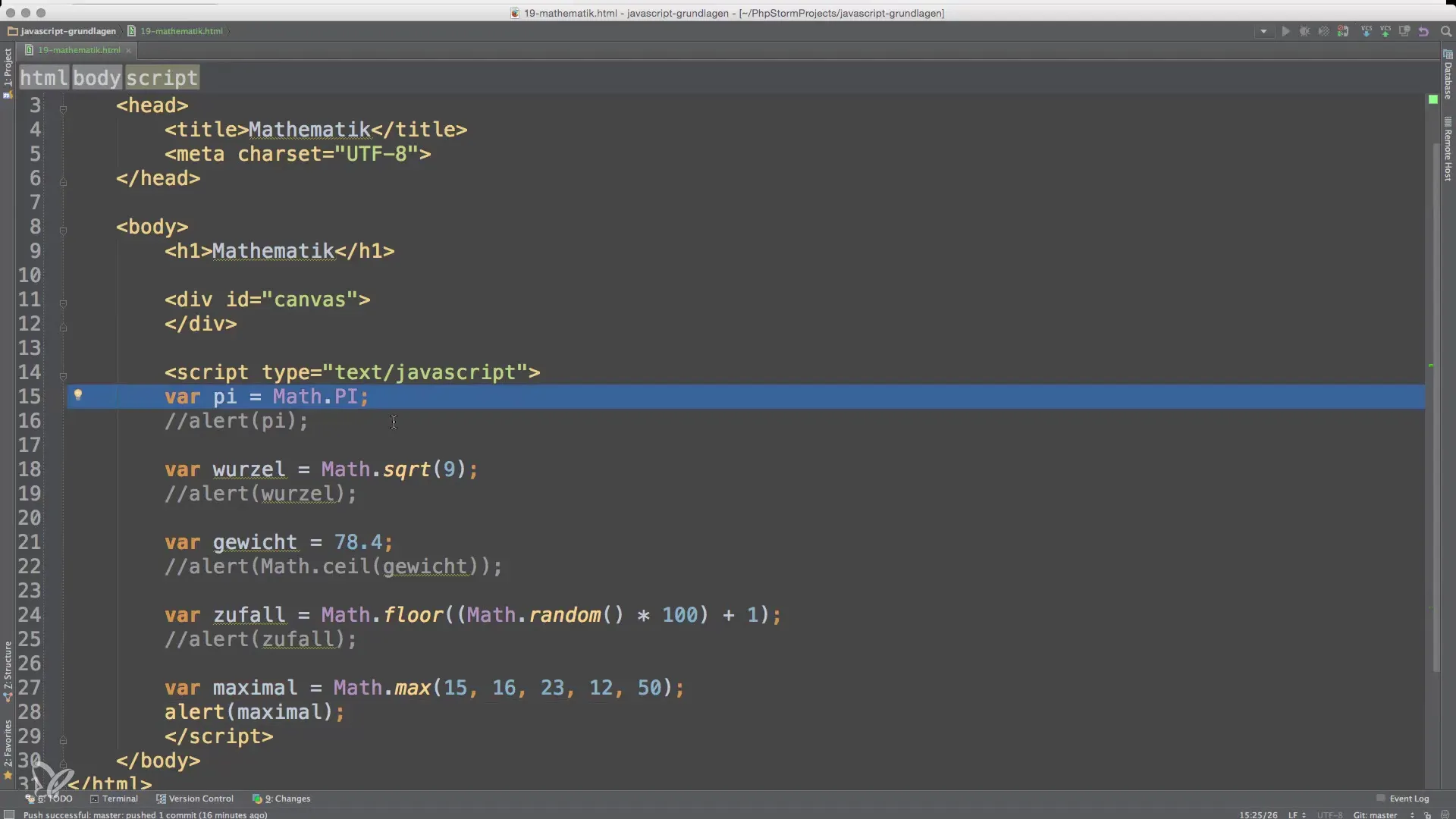
Summary - Calculating with JavaScript: Mathematical Basics and Functions
In this tutorial, you learned the fundamental functions of JavaScript for performing mathematical calculations. You now know how to work efficiently with the Math object and how to calculate random numbers as well as min and max values.
Frequently Asked Questions
Which function is used to calculate the square root of a number?Use the Math.sqrt() function to calculate the square root.
How can I generate random numbers within a range?Use Math.random(), scale, and round the result to get random numbers in a specific range.
What is the difference between Math.floor() and Math.ceil()?Math.floor() always rounds down, while Math.ceil() always rounds up.
How do I round a number to the nearest integer?Use the Math.round() function to round to the nearest integer.
What is the Math object in JavaScript?The Math object provides mathematical functions and constants for calculations in JavaScript.


